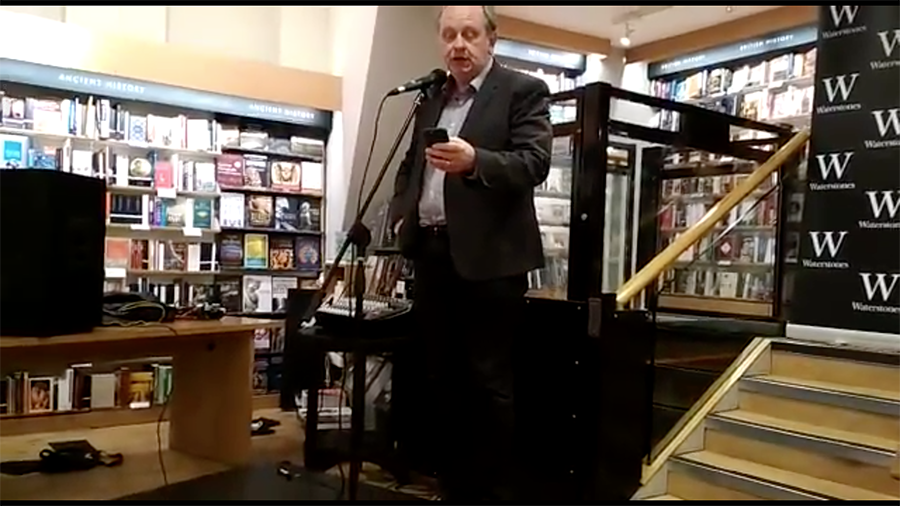I am occasionally quite critical of my old school and that’s completely unfair. For one thing, it is entirely because of its teaching that I remember, remember the 5th of November and if that is less of a political education than it could have been, sometimes it can be all the politics I can take.
Then, of course, I can count the number of times I’ve needed to know that September hath thirty days. I can count because I presume I lean on this fact at most annually, but I won’t count because then I’d have to think about how many years it’s been since I was a schoolboy.
Apparently someone I was at school with is now in charge of the place. I want to assume he’s made it better, I keep wondering instead if he’s actually always been stuck there in some kind of purgatory.
Anyway. Something that would surprise my teenage self about what became of me is that I once had a request on BBC Radio 4’s Poetry Please. I presume my school taught us some poetry but not well enough to remember and certainly not enough to mean that with a combination of their teaching and whatever writing skill I have, that I can write any poetry at all.
I cannot, cannot write poetry and all of this is partly on my mind because tomorrow I’m running a workshop that is all about it. It occurs to me that you might well think now that I am keeping up the high standards of my school, but I promise you, no. I’ve got a poet helping me in the workshop. I say helping me, I’m going to throw the ball to her and then soak up every syllable she says.
I think a lot about syllables, I think even more about words, and it’s an enjoyable kind of thinking which it rather needs to be since I’ve yet to actually get anywhere with the thoughts. Especially not when the words and the syllables are poetry. I can do it with prose, if you give me some prose I can express why I do or don’t like it, and I can vocalise why I do or don’t like a script.
Not poetry.
I am incapable of assessing a poem, just physically unable to have any kind of coherent opinion. What I can have from poetry, though, is a slap to the face.
Last night I re-read “Sweet Sorrow”, a stage play by Alan Plater. A group of people are having their annual party celebrating the life of poet Philip Larkin when an unexpected guest comes to the door. It’s the late Philip Larkin. And the play reeks of being Alan’s tribute to his friend, but it’s also very simply – in every sense of that phrase – moving.
It features many of Larkin’s poems and you also realise in the last moments that the entire play really comes straight from one of them. Like the script says, I only know the famous one about what your parents do to you, but across two acts, I am shown very many more and shown so well that these could now be favourite poems of mine.
That’s not why I wanted to talk to you about this today.
No, the reason is that the play has a brief nod to another poet, Christina Rossetti. It features a few lines from her “When I am dead, my dearest” and, for me, specifically these:
And if thou wilt, remember,
And if thou wilt, forget.
That’s it. That’s the poem I asked to be read on Poetry Please. I was at the live recording in the Birmingham Literature Festival and practically first met poet Jo Bell there because she was sitting next to me in the audience. I remember she knew to put a sympathetic, empathetic hand on my knee. I want to say she knew to hold my hand. Those two lines make me weep and I was sitting there, shaking.
Last night I was in my office, reading an old stage play by a friend I miss, and those lines are the ones that slap me.
I am actually crying right now, writing them to you.
This is what my school should have taught about poetry. I have a sense that they would’ve said, and surely my teenage self would have thought, that crying over a poem means you’re weak. Now I know that it means the words are strong.
And that’s what I really needed to learn. Not poetic structure, not the fact that Rossetti died 127 years ago, I’ll take all of that and know it’s interesting, but fuck explanations, the point is that words are so strong.
